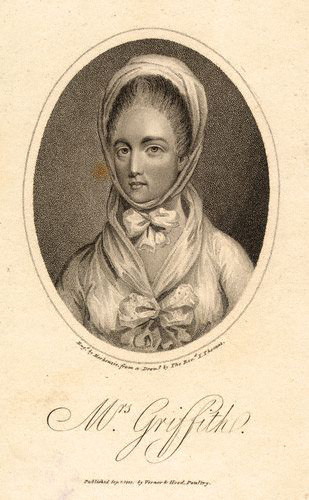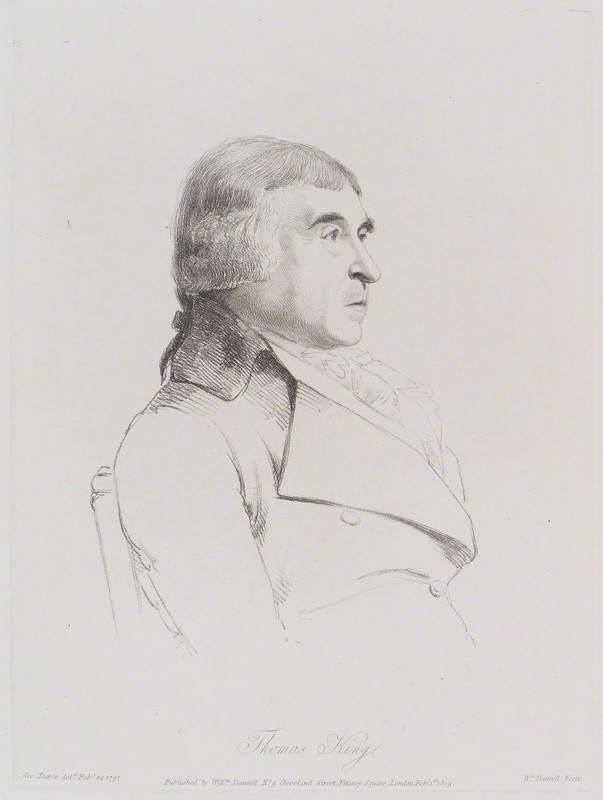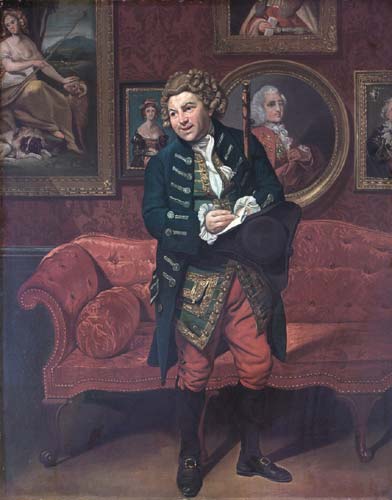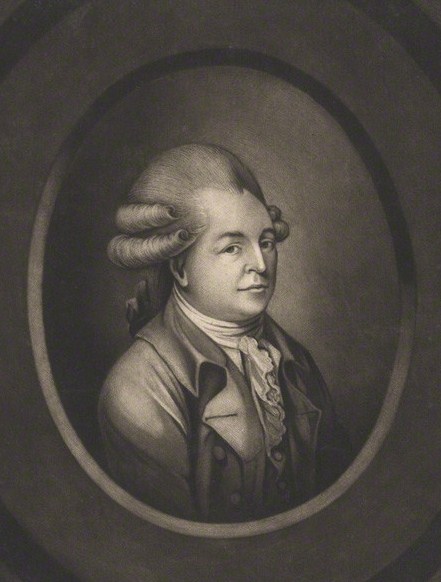|
The School For Rakes
''The School for Rakes'' is a 1769 comedy play by the British writer Elizabeth Griffith.Watson p.1503 It was inspired by the 1767 French play '' Eugénie'' by Pierre Beaumarchais. The original Drury Lane cast included Samuel Reddish as Frampton, Samuel Cautherley as Lord Eustace, Charles Holland as Sir William Evans, James William Dodd as Willis, Thomas King as Captain Lloyd, John Palmer as Colonel Evans, Robert Baddeley as Robert, Kitty Clive as Mrs Winifred and Sophia Baddeley Sophia Baddeley born Sophia Snow (1745 – July 1786) was an English actress, singer and courtesan. Early life, musical career She was born in London, the daughter of Mary and Valentine Snow, who was the sergeant-trumpeter to George II. ... as Harriet. References Bibliography * Baines, Paul & Ferarro, Julian & Rogers, Pat. ''The Wiley-Blackwell Encyclopedia of Eighteenth-Century Writers and Writing, 1660-1789''. Wiley-Blackwell, 2011. * Watson, George. ''The New Cambridge Bibliography o ... [...More Info...] [...Related Items...] OR: [Wikipedia] [Google] [Baidu] |
Elizabeth Griffith
Elizabeth Griffith (1727 – 5 January 1793) was an 18th-century Welsh-born dramatist, fiction writer, essayist and actress, who lived and worked in Ireland. Biography Elizabeth Griffith was born in Glamorgan, Wales, to Dublin theater manager Thomas Griffith and Jane Foxcroft Griffith on 11 October 1727. /sup> “The family settled in Dublin, where they brought up Elizabeth to be a sociable child, cheerful and at ease among the theatrical community”. In addition to giving her access to the theatre-world, Thomas Griffith educated Elizabeth in French and English literature. Her father died in 1744, which led to economic hardship for the family. Her Dublin acting debut took place on 13 October 1749, when she played Juliet to a considerably older Romeo played by Thomas Sheridan at the Smock Alley Theatre. Griffith specialized in tragic roles, such as Jane Shore in Nicholas Rowe's ''The Tragedy of Jane Shore'' and Cordelia in ''King Lear''. Elizabeth met her kinsman and future ... [...More Info...] [...Related Items...] OR: [Wikipedia] [Google] [Baidu] |
Thomas King (actor)
Thomas King (1730–1805) was an English actor, known also as a theatre manager and dramatist. Early life Born 20 August 1730, in the parish of St George's, Hanover Square, London, where his father was a tradesman, he was educated at a grammar school in Yorkshire, and then at Westminster School. Articled to a London solicitor, he was taken to a dramatic school, and in 1747, with Edward Shuter, he ran away, and joined a travelling company at Tunbridge. He then had a period acting in barns, in the course of which (June 1748) he played in a booth at Windsor, directed by Richard Yates. London actor King was seen by David Garrick, who, on the recommendation of Yates, engaged him for Drury Lane. His first part was the Herald in ''King Lear''. On 19 October 1748, when Philip Massinger's '' New Way to Pay Old Debts'' was given for the first time at Drury Lane, he played Allworth. He was in the same season the original Murza in Samuel Johnson's ''Irene'', and played a part in ''The Hen- ... [...More Info...] [...Related Items...] OR: [Wikipedia] [Google] [Baidu] |
Comedy Plays
Comedy is a genre of fiction that consists of discourses or works intended to be humorous or amusing by inducing laughter, especially in theatre, film, stand-up comedy, television, radio, books, or any other entertainment medium. The term originated in ancient Greece: in Athenian democracy, the public opinion of voters was influenced by political satire performed by comic poets in theaters. The theatrical genre of Greek comedy can be described as a dramatic performance pitting two groups, ages, genders, or societies against each other in an amusing '' agon'' or conflict. Northrop Frye depicted these two opposing sides as a "Society of Youth" and a "Society of the Old". A revised view characterizes the essential agon of comedy as a struggle between a relatively powerless youth and the societal conventions posing obstacles to his hopes. In this struggle, the youth then becomes constrained by his lack of social authority, and is left with little choice but to resort to ruses wh ... [...More Info...] [...Related Items...] OR: [Wikipedia] [Google] [Baidu] |
1769 Plays
Events January–March * February 2 – Pope Clement XIII dies, the night before preparing an order to dissolve the Jesuits.Denis De Lucca, ''Jesuits and Fortifications: The Contribution of the Jesuits to Military Architecture in the Baroque Age'' (BRILL, 2012) pp315-316 * February 17 – The British House of Commons votes to not allow MP John Wilkes to take his seat after he wins a by-election. * March 4 – Mozart departs Italy, after the last of his three tours there. * March 16 – Louis Antoine de Bougainville returns to Saint-Malo, following a three-year circumnavigation of the world with the ships '' La Boudeuse'' and '' Étoile'', with the loss of only seven out of 330 men; among the members of the expedition is Jeanne Baré, the first woman known to have circumnavigated the globe. She returns to France some time after Bougainville and his ships. April–June * April 13 – James Cook arrives in Tahiti, on the ship HM Bark ''End ... [...More Info...] [...Related Items...] OR: [Wikipedia] [Google] [Baidu] |
Sophia Baddeley
Sophia Baddeley born Sophia Snow (1745 – July 1786) was an English actress, singer and courtesan. Early life, musical career She was born in London, the daughter of Mary and Valentine Snow, who was the sergeant-trumpeter to George II. As a child, she was trained by her father for a future musical career. left, Mrs Baddeley in the role of Joan of Arc At the age of eighteen she eloped with the actor Robert Baddeley, then on the stage at Drury Lane. She made her first appearance on 27 April 1765, as Ophelia in ''Hamlet ''The Tragedy of Hamlet, Prince of Denmark'', often shortened to ''Hamlet'' (), is a tragedy written by William Shakespeare sometime between 1599 and 1601. It is Shakespeare's longest play, with 29,551 words. Set in Denmark, the play depicts ....'' She also played Cordelia in ''King Lear'', Imogen in ''Cymbeline'' and later Olivia in ''Twelfth Night''. In 1769, she joined David Garrick's theatre company when he staged the Shakespeare Jubilee, Str ... [...More Info...] [...Related Items...] OR: [Wikipedia] [Google] [Baidu] |
Kitty Clive
Catherine Clive (née Raftor; 5 November 1711 – 6 December 1785) Catherine ‘Kitty’ Clive (1711-1785, active 1728-1769) was a first songster and star comedienne of British playhouse entertainment. Clive led and created new forms of English musical theatre. She was celebrated both in high-style parts – singing, for instance, Handel’s music for her in ''Messiah'', ''Samson'', and ''The Way of the World'' – and in low-style ballad opera roles. Her likeness was printed and traded in unprecedented volume. She championed women’s rights throughout her career. An image crisis in the late 1740s forced Clive to quit serious song and instead lampoon herself on stage. Though this self-ridicule won Clive public favour back, and she reigned as first comedienne until her retirement in 1769, the strategy’s very success caused her musical legacy to be slighted and forgotten. A definitive biography of Clive by Berta Joncus appeared in 2019. [...More Info...] [...Related Items...] OR: [Wikipedia] [Google] [Baidu] |
Robert Baddeley (actor)
Robert Baddeley (1733–1794) was an England, English actor. His parentage is unknown, as is his place of birth, though the latter may have been London. He worked as a cook and valet, and one of his employers was the actor-manager Samuel Foote, who may have inspired him to take to the stage. He spent three years following another employer on a Grand Tour, which helped him to develop the facility with languages and accents which was to be a hallmark of his career. In 1760 Baddeley made his stage debut in one of Foote's productions at the Haymarket Theatre in London. Soon afterwards he trod the boards of the Theatre Royal, Drury Lane and the Smock Alley Theatre in Dublin. By 1762 he was a full member of the Drury Lane company, and he remained there for the rest of his career, while also playing summer seasons at the Haymarket. He was a great success in low comedy and servants' parts, and often played comic foreigners such as Canton in ''The Clandestine Marriage''. In 1777 he play ... [...More Info...] [...Related Items...] OR: [Wikipedia] [Google] [Baidu] |
John Palmer (actor)
John Palmer (c. 1742–1798) was an actor on the English stage in the eighteenth century. There was also another John Palmer (1728–1768) who was known as Gentleman Palmer. Richard Brinsley Sheridan nicknamed him Plausible Jack. Birth and youth He was born in the parish of St Luke's, Old Street, London, about 1742, was son of a private soldier. In 1759 the father served under the Marquis of Granby, and subsequently, on the marquis's recommendation, became a bill-sticker and doorkeeper at Drury Lane Theatre in London. When about eighteen John recited the parts of George Barnwell and Mercutio to David Garrick, but Garrick found no promise in him, and joined his father in urging him to enter the army. Garrick even got a small military appointment for him; but Palmer refused to follow his counsel, and entered the shop of a print-seller on Ludgate Hill. On 20 May 1762, for the benefit of his father and three others, he made his first appearance on any stage, playing Buck in the ''En ... [...More Info...] [...Related Items...] OR: [Wikipedia] [Google] [Baidu] |
James William Dodd
James William Dodd (1740?–1796) was an English actor, one of David Garrick's picked company. Early life Born in London about 1740, he is said to have been the son of a hairdresser. He was educated at the grammar school in Holborn. A success in a school performance of the '' Andria'' of Terence decided him to become an actor. Aged 16, Dodd is said to have appeared at Sheffield as Roderigo in '' Othello''. He was met by Tate Wilkinson in Norwich in 1763. He then played in comedy and tragedy, and was popular, according to Wilkinson. An engagement in Bath, Somerset followed, and proved a stepping-stone to London. At Drury Lane John Hoadly saw Dodd in ''The Jealous Wife'' and recommended him to David Garrick, who decided with James Lacy to engage him for Drury Lane Theatre. Dodd's first appearance at Drury Lane took place 3 October 1765 as Faddle in Edward Moore's comedy, ''The Foundling''. For 31 years, Dodd remained there. During this long period he played mainly beaux and ... [...More Info...] [...Related Items...] OR: [Wikipedia] [Google] [Baidu] |
Theatre Royal, Drury Lane
The Theatre Royal, Drury Lane, commonly known as Drury Lane, is a West End theatre and Grade I listed building in Covent Garden, London, England. The building faces Catherine Street (earlier named Bridges or Brydges Street) and backs onto Drury Lane. The building is the most recent in a line of four theatres which were built at the same location, the earliest of which dated back to 1663, making it the oldest theatre site in London still in use. According to the author Peter Thomson, for its first two centuries, Drury Lane could "reasonably have claimed to be London's leading theatre". For most of that time, it was one of a handful of patent theatres, granted monopoly rights to the production of "legitimate" drama in London (meaning spoken plays, rather than opera, dance, concerts, or plays with music). The first theatre on the site was built at the behest of Thomas Killigrew in the early 1660s, when theatres were allowed to reopen during the English Restoration. Initially ... [...More Info...] [...Related Items...] OR: [Wikipedia] [Google] [Baidu] |
Charles Holland (actor)
Charles Holland (12 March 1733 – 7 December 1769) was an English actor, born in Chiswick, the son of a baker. Life Holland made his first appearance on the stage in the title role of Oroonoko at Drury Lane in 1755, John Palmer, Richard Yates and Susanna Cibber being in the cast. He played under David Garrick, and was the original Florizel in the latter's adaptation of Shakespeare's ''The Winter's Tale''. Holland died from smallpox at the age of 36. He was engaged to the actress Jane Pope, but she broke off the engagement when she found him boating at Richmond with the actress Sophia Baddeley. He was known for having affairs; the one with Mrs K. Earle led her husband, William Earle, to prosecute Holland successfully. Garrick thought highly of him, and wrote a eulogistic epitaph for his monument in St Nicholas Church, Chiswick. His tomb was sculpted by William Tyler RA.Dictionary of British Sculptors 1660-1851 by Rupert Gunnis p.404 His nephew, Charles Holland (1768 ... [...More Info...] [...Related Items...] OR: [Wikipedia] [Google] [Baidu] |
Samuel Cautherley
Samuel Cautherley (c.1747–1805) was a British stage actor. His surname is sometimes spelt as Cautherly. Born to the actress Jane Green, he was reputed to be the son of David Garrick, actor-manager at the Theatre Royal, Drury Lane. Cautherley began appearing there as a child actor. Sent away to school he quickly returned again to the stage in 1760 and, after another short period away, in 1765. Despite the assistance of Garrick, he was often criticised in the press. He played Charles Dudley in Cumberland's ''The West Indian'' and appeared in a mixture of lead and supporting roles until falling out with Garrick in 1775, after which he quit the stage.The Routledge Anthology of Restoration and Eighteenth-Century Drama XLI Selected roles * Jasper in ''Miss in Her Teens'' by David Garrick (1755) * Dorilas in '' Merope'' by George Jeffreys (1766) * Dauphin in ''King John'' by William Shakespeare (1766) * Hamlet in ''Hamlet'' by William Shakespeare (1766) * Romeo in ''Romeo and Juliet'' ... [...More Info...] [...Related Items...] OR: [Wikipedia] [Google] [Baidu] |







